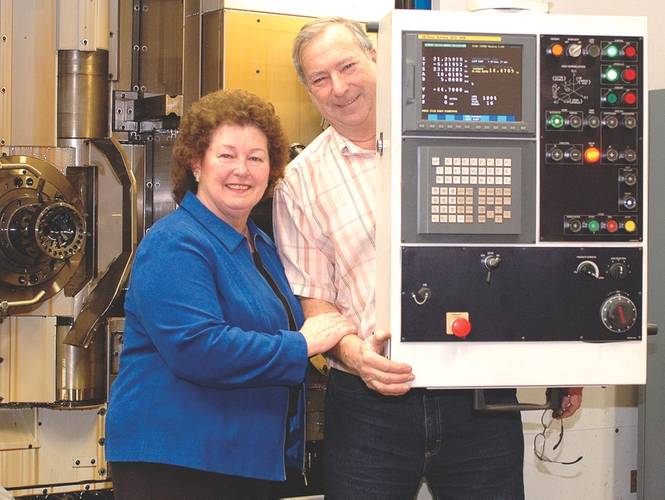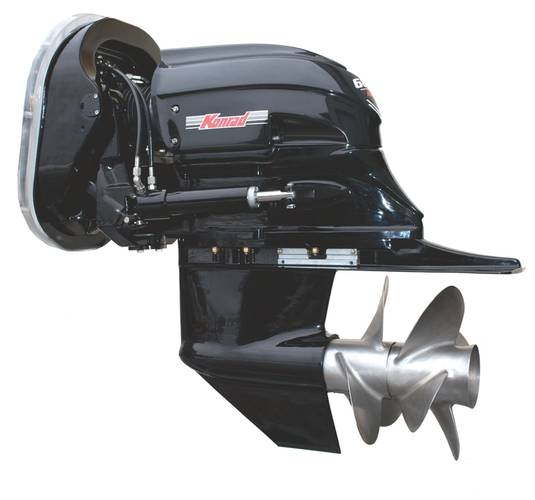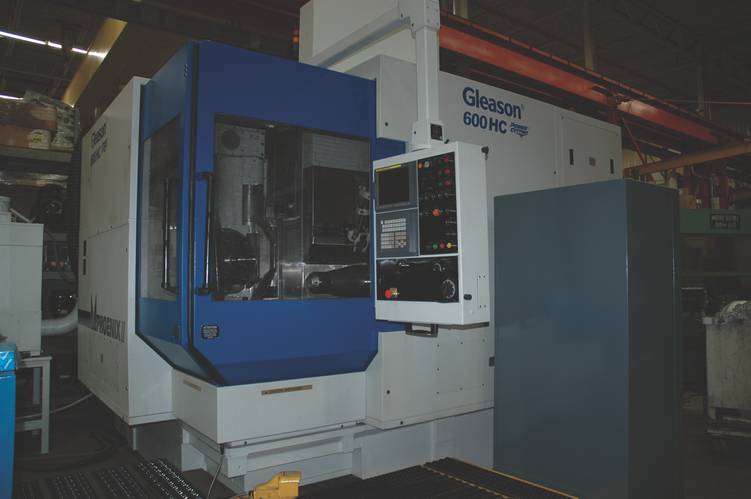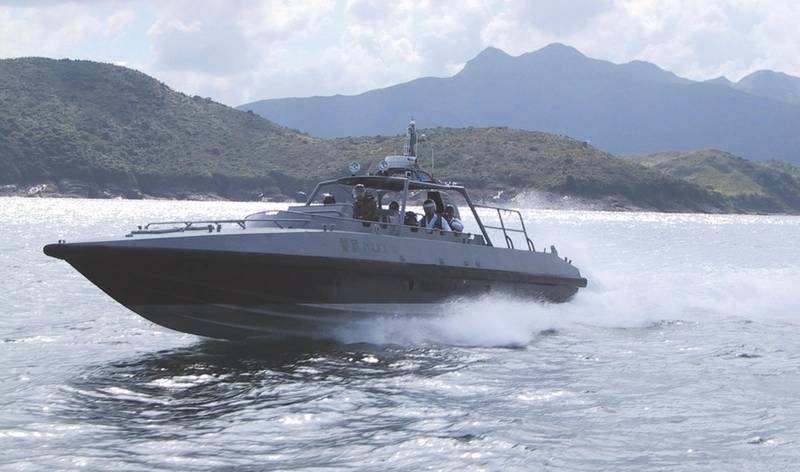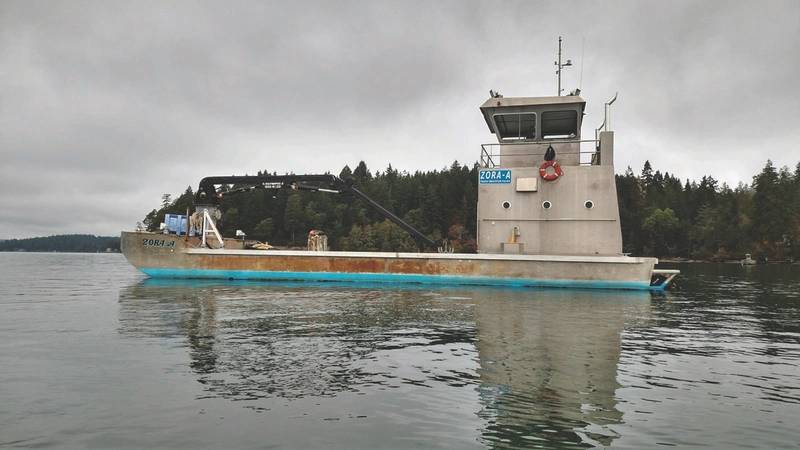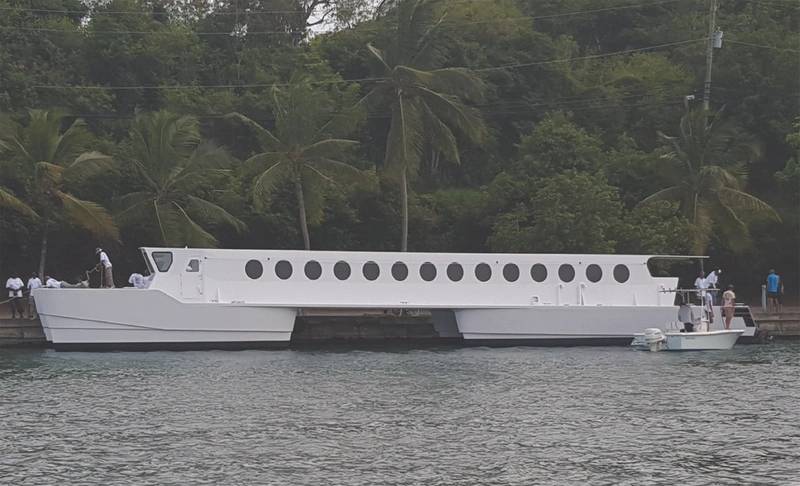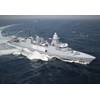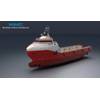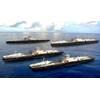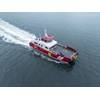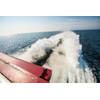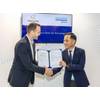At his core Ken Konrad is an innovator and engineer, looking at problems and seeing solutions. We spent a day at Konrad’s headquarters in Hudson, Wis., for insights on what makes the “Stern Drive Specialist.”
Walk around Konrad’s manufacturing and testing facility for even a short time and it is easy to see that Ken Konrad, owner and president, possesses a sharp intellect and an engineer’s mind, as he clearly revels in sharing insight on business and manufacturing practice that goes in each of his company’s rugged stern drive units. While Konrad has quickly established itself as a quality name in the commercial stern drive sector, it is still a newer business line within the company’s overall scope.
In the 1960s, following high school Konrad became a tool and die maker before joining the U.S. Navy and serving for a few years working on Swift boats and patrol craft in Vietnam. Upon returning he worked in his father’s machine shop, but he knew he wanted more. “I wanted to be more in charge of things, so I went back to college under the GI Bill and earned a Mechanical Engineering degree from the University of Minnesota. When he graduated he earned a “9 to 5” job with a larger company, but even so his entrepreneurial spirit was starting to come out, as he would visit steel mills on his own time to line up small jobs for his own company, which at the time was simply a side business. “Then one day I received a substantial order, so I quit my job and went from wearing a suit and tie everyday to running my own one-man shop,” said Konrad. Starting as a solo act in 1967 serving the steel industry, Konrad has grown his company to 50 employees today and has evolved to manufacture a rugged line of stern drives for commercial and military maritime markets around the globe.
Entering Maritime
Konrad’s initial business – which is still a significant part of the current company, focused on steel mills; specifically he developed a method to rebuild parts of the rolling mills. The company grew steadily, but in the late 1980s Ken sensed a looming market downturn in the perpetually cyclical steel market, and he gathered his team for ideas on new business ventures.
One of his inside salesmen had experience in the maritime market, and suggested that the company get into the business of rebuilding stern drives from existing manufacturers. In working with various manufacturers for parts, Konrad came to the conclusion that he could design and manufacture parts that were better. So he did just that.
“One thing led to another, and before you know it we started manufacturing our own stern drives,” said Konrad.
In 1997, after several years of development, Konrad brought to market the 500 series, its first stern drive, which was specifically designed for hard-working continuously run applications with diesel engines. It was designed to operate for up to 2,000 hours between major overhauls, and to handle diesel engine torque up to 600 lb./ft. As word of the units started to spread, sales grew quickly, averaging 26% growth per year between 1991 and 2001. Following the bombing of the USS Cole in Yemen in 2000, the U.S. Navy took liking to the Konrad solution, and with the Hudson, Wis., factory running at capacity sales leapt 200% between 2001-2002. While the units were designed to deliver 2,000 hours between major overhauls, the company reports that some navy vessels logged more than 10,000 hours on a single unit before an overhaul. In total more than 300 Konrad 520s were installed on 24 ft. RIBS, and more than 200 were installed on the Navy’s PB34 vessels.
With solid footing in the market, Konrad has continued to improve the performance and power intake capabilities of its sterndrive units, including the introduction of the Konrad 560 stern drive with a dual prop, and the introduction of its own in-house gear manufacturing when third party gears started to inexplicably fail. Most recently the company introduced the 600-B Series stern drives as the demand for additional marine power continues to grow, and similar to the smaller 500-Series, there are several versions available in the 600-Series to accommodate differing needs:
- The Konrad 620-B is a single prop workhorse
- The Konrad 660-B is a dual prop designed for speed
- The Konrad 680-B offers a combination of strength and speed with dual prop, able to handle diesel engine power up to 580 hp. (Note: the Konrad 680-B is promoted at 550 hp, it has been successfully tested at 580 hp. Also, it has a carrying capacity of 18,500 lbs. per drive).
While Ken Konrad is remiss to name one project as a favorite over another, he exudes a particular sense of pride in discussing a contract to provide propulsion on a series of five triple engine Hong Kong police boats, built by Damen and powered to chase and catch vehicle smugglers in the region.
Maintaining Identity
In companies large and small rapid growth can sometimes cloud the original mandate, principles and missions that started the company. This is clearly not the case in Konrad, as Ken Konrad to this day is still the engineer, the entrepreneur and the problem solver.
“This company is in some ways the same as when I started it because it is personal,” said Konrad. “I’m here every day and the employees see me, and I have some people who have worked here more than 35 years. I walk the floor every day and look forward to seeing everyone.”
He said that his number one challenge as a manufacturer is simply finding good, qualified talent.
“Getting skilled personnel, getting machinists, is very tough these days. If you get that person, you have to train them and you have to keep them,” said Konrad. Last year he took 14 employees – or 30% of his company – to the International Machine Tool Show in Chicago. “I offer it so they get to see what is new,” said Konrad. “I depend on our employees to be on the lookout for tools and technologies that will improve our business, and I expect them (at the show in Chicago) to come to me daily with new ideas for me to see.”
That continued investment in technology is quickly evident when walking the manufacturing floor with Ken and totaling the manufacturing automation which has cost millions of investment in new equipment. According to Julie Heifner, Konrad’s Global Business Development Manager, the company’s investment approach is not exclusive to equipment alone, and includes engineering, machining, assembly and sales, the latter an investment in Konrad’s global dealers and distributors. “We know that it is not possible to serve the world with 50 people from Hudson, Wis., so we have built a network of partners that are committed, hungry, capable and experienced,” said Heifner. “We currently have four premier partners that also serve as spares depots for the company: one in the U.K., one in the Netherlands, one in Panama and one in Seattle. When all is said and written, the Konrad story really starts and ends with quality, which Ken Konrad said comes back full circle to his employees. “If you have good, happy employees, you’re going to get good quality,” said Konrad. “I can buy the best equipment in the world, but if the employee does not care, they you’re not going to get good quality. We can manufacture the best parts in the world, but if the assembly team is careless, you might get a breakdown. Good quality starts and ends with the employees.”
Konrad’s Total Gear Cutting System
Ken Konrad is an engineer and innovator to the core. With all of the parts and technology built into his series of stern drives, he considers the gears to be the heart and soul. Following a number of gear failures in its stern drive unit – gears supplied by a third-party – Konrad proved that its mantra of quality control and self-sufficient operation was more than words with a $1.2m investment in its own gear-cutting technology.
In 2012 Konrad Marine announced the implementation of its Total Gear Cutting System, based on the modern bevel gear cutting machine Gleason Phoenix II, 600HC. Highly specialized, integrated programming makes it one of only three in the world with its unique capabilities.
“Our primary objective is to have the toughest stern drive on the market,” said Ken Konrad. “To achieve this, we need the strongest, most powerful and capable stern drive gears in the marine industry. We started with a phenomenal new gear cutting machine. By adding our proprietary processes, specialized programs, design and tooling based on decades of successful experience, we created the Total Gear Cutting System.”
• 








